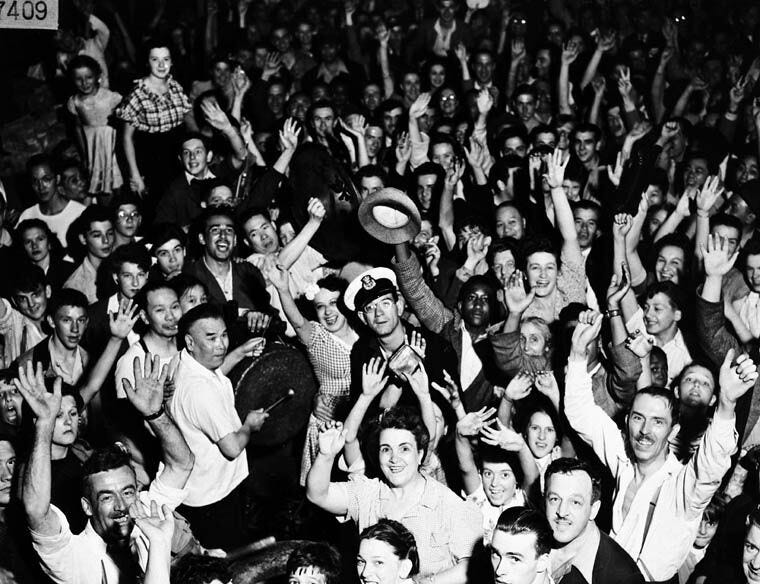Geoff Russ: No, every Canadian is not an immigrant
The notion that all Canadians are somehow tied to a foreign country is silly at best, and toxic at worst.
If you were born and raised in Canada, you are not an immigrant.
That is not a difficult concept to understand for most, but that bit of wilful ignorance is an article of faith among progressives.
The phrase began as a book titled A Nation of Immigrants, written by John F. Kennedy and published in 1958. The book was part of a liberal push to loosen American immigration restrictions, which ultimately succeeded with the passage of the Hart–Celler Act in 1965.
Today, you will even find commentators in Britain, of all places, insisting that their country is now also a nation of immigrants. People may disagree and even have some irrefutable evidence on that point, but challenging the notion has become professionally risky.
In this regard, the British are actually better described as a nation of emigrants, if they even form a nation at all between England, Scotland, Wales, and Northern Ireland.
Britain’s diaspora is huge. At the peak of its Empire, millions left the country for dozens of disparate colonies around the world. In a few special cases, they created and led countries that endure to this day, Canada among them, founded alongside the French Canadians.
Over time, these original colonists experienced their own ethnogenesis, shaped by the land and contact with the First Peoples.
There are countless families that have been in Canada for hundreds of years, and in the case of the Indigenous peoples, for thousands.
These are not immigrants in any sense of the word, and it is wrong to erase their stories. They are not defined by the passage across the Atlantic made by their ancestors in the 18th century.
Canada’s culture and identity, including its history, customs, laws, and attitudes, are largely British in origin, but they were changed by this country in such a way that we are different from the modern United Kingdom.
Americans and Australians have a similar inheritance, but their national histories mean that Canadians are not identical to them. That should not be misinterpreted as a call for Canadianness to require a racial purity test.
On the other side of the continent, Chinese workers first arrived in the Colony of Vancouver Island in the 1850s, and many of their families have been there ever since. Victoria’s Chinatown is older than Confederation and the Dominion of Canada itself.
The descendants of Black Loyalists who arrived after the American Revolution have lived in the Maritimes longer than most white Anglo-Canadian families.
How can the successors of these communities be described as immigrants in 2025? Canada’s historic levels of diversity, which were far lower than today’s, do not justify the present obsession with diversity for the sake of it.
Cynically exploiting these family histories to push an agenda of reckless modern mass immigration is shameful.
Immigration in 2025 is not the same as it was in 1865, or even 1985, just as the economy, technology, and warfare have evolved.
In July, Anthony Koch summed it up well in the National Post.
“I am the grandchild of four immigrants. But that does not make me a mascot for open borders. And I will not clap like a trained seal while bad policy is being made in my ancestors’ name.”

The immigrant experience is a unique one involving uprooting oneself and one’s family to arrive as strangers in a new land. Long-distance phone calls with loved ones in the old country are the norm, as are expensive flights across oceans to see parents, cousins, and grandparents.
If this is not your experience, and visiting family means only travelling to another province, you are almost certainly not an immigrant. There are challenges and perspectives on life that are held by newcomers which most native-born Canadians will never understand.
A man from Vancouver whose forebears arrived from Hong Kong in 1868 lives a completely different life from a Chinese international student applying for a work permit in 2025.
In the case of the former, his great-grandparents endured decades of humiliation as second-class citizens. For generations, they steadily pushed to become recognised as part of the Canadian nation, rather than replace it.
Was all that effort and pain expended for Ottawa to simply keep classifying them as immigrants in perpetuity? The attempt to assert that Canada “has no core identity” is part of the long effort to cheapen Canadian citizenship and nationhood.
For example, the current Minister of Justice and Attorney General of Canada, Sean Fraser, has rebuffed calls by the Conservatives to withhold birthright citizenship to children born to temporary residents in Canada.
Passports are ultimately just travel documents that list you as a citizen on paper. Truly being part of a nation is different.
Tom Hanks was awarded Greek citizenship in 2020 and holds a Greek passport. Presumably, Hanks is not fluent in the Greek language, is not baptised in the Greek Orthodox faith, and can remain calm in a room full of Albanians or Turks.
Some people simply collect passports for mercenary reasons, such as easier access to banking and smoother asset acquisition. This calls into question Justin Trudeau’s assertion: “A Canadian is a Canadian is a Canadian.”
A nation of immigrants in a country with no core identity is no nation at all. It has no inheritance, history, or customs. That is not Canada, yet, as much as the Liberal Party wishes it were.
Reversing course means fundamentally changing how institutions operate, right down to how they talk about Canadians. The words of government and government-adjacent institutions must speak of Canada as a nation and people, not as some sort of propositional project.
It means reorienting education, immigration, and even the welfare state for a national goal, and being willing to say that some things are not Canadian, and never will be. Questions about those policy outcomes are for another time, but can and will be answered.
For now, it is enough to refute the idea that everybody in Canada is somehow a newcomer. That is not to suggest that immigrants are second-class citizens, far from it.
What it acknowledges is that Canada was created by a people, and they have lived and died here long enough to no longer be tied to faraway, forgotten lands.
The contributions made by many modern first-generation immigrants are not diminished by the fact that they will hold onto memories and habits of where they came from. This is only human.
Hoping that their children and grandchildren will have a strong Canadian identity and be absorbed into the nation is a worthy goal, for it affirms the goodness of this country and what was built here over the past four centuries.
Geoff Russ is the Editor-at-Large of Without Diminishment. He is a contributor to a number of publications, including the National Post, Modern Age, and The Spectator Australia.




